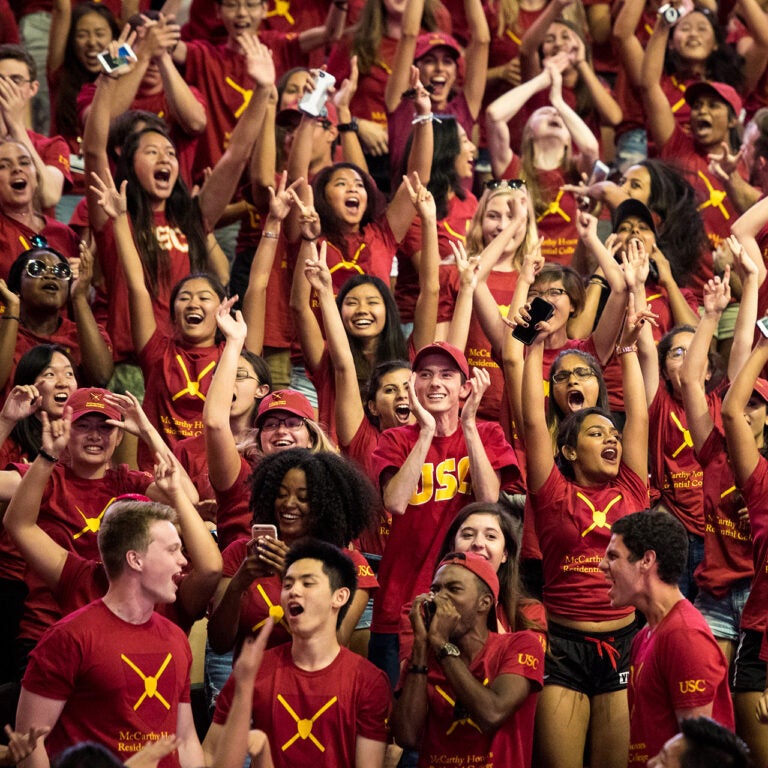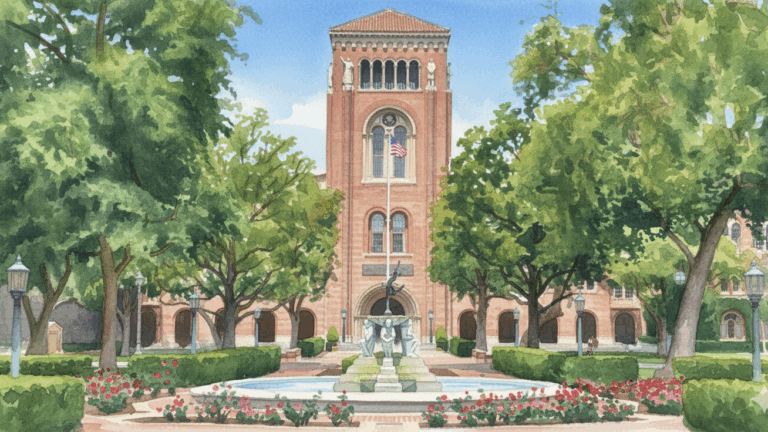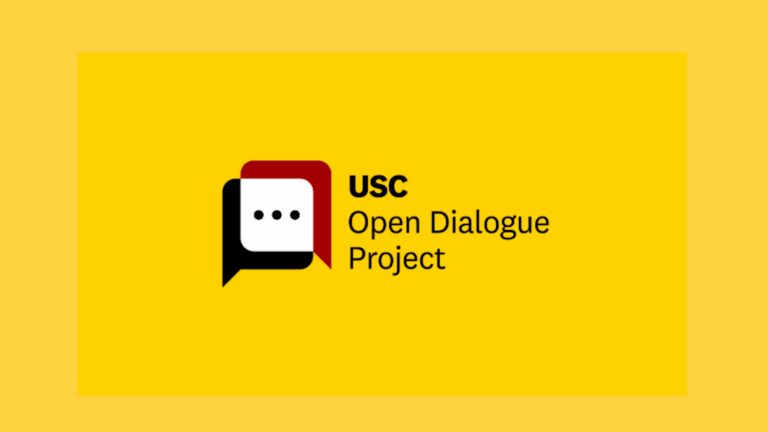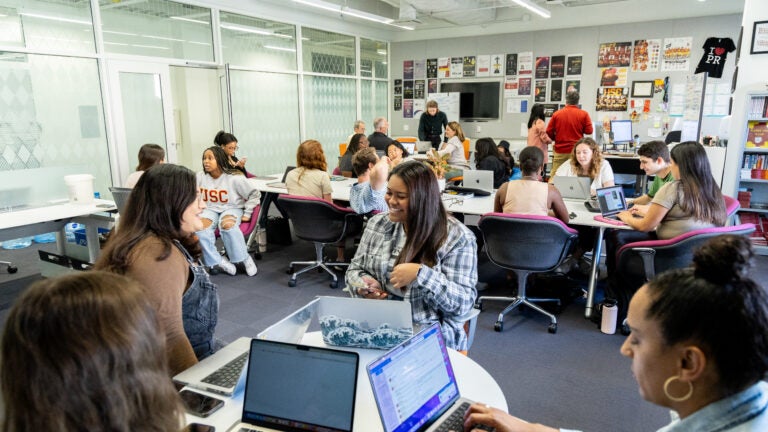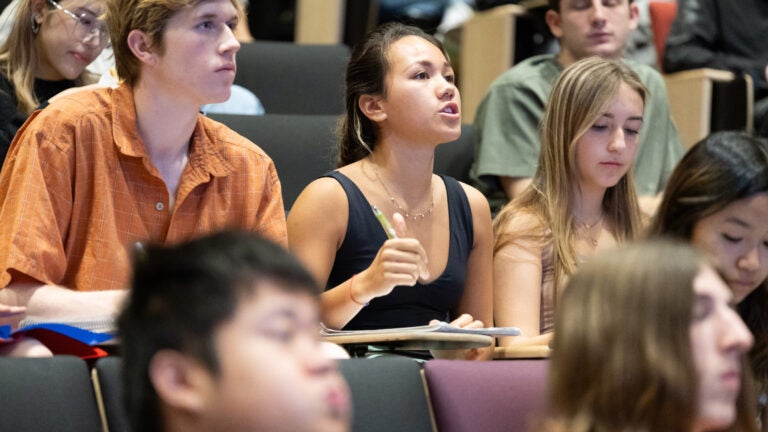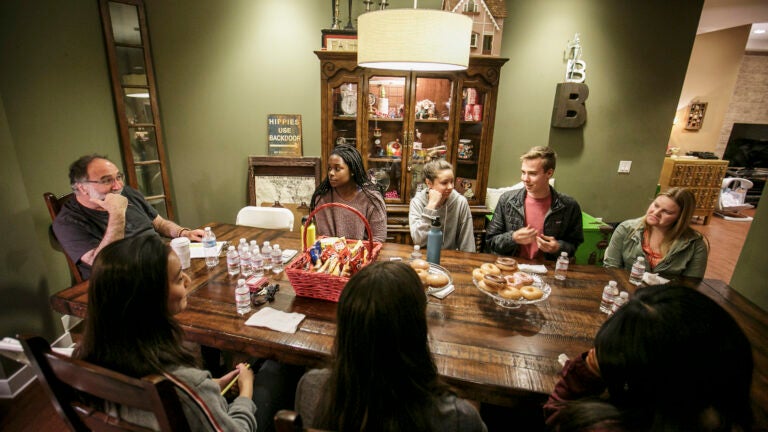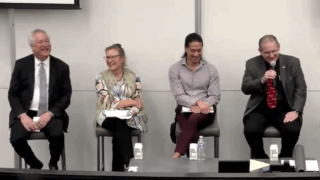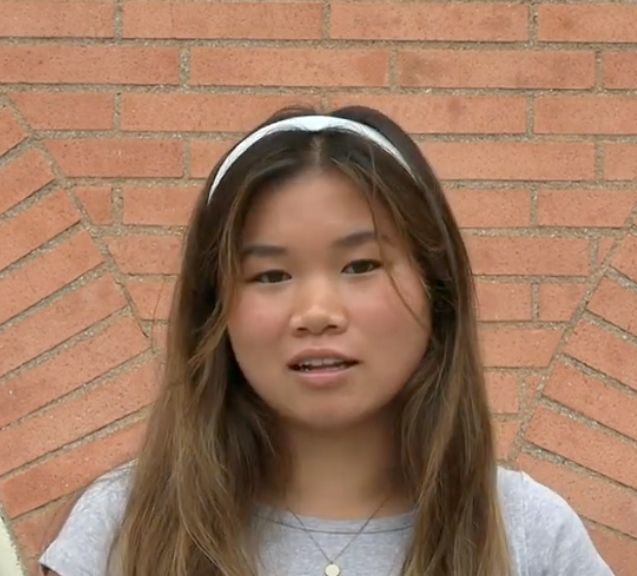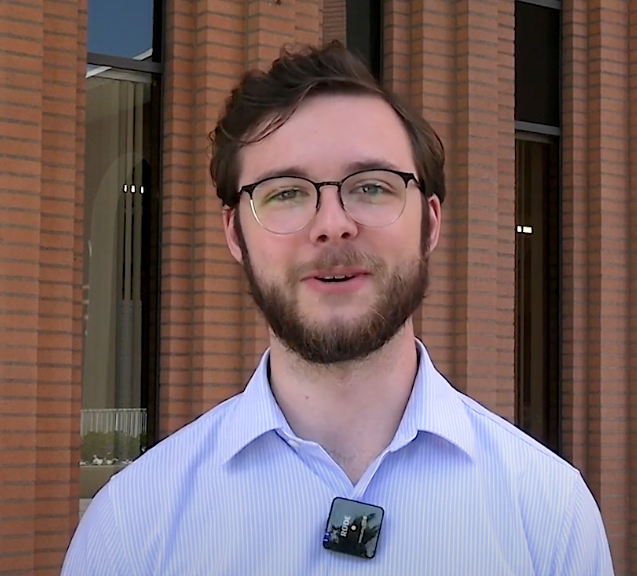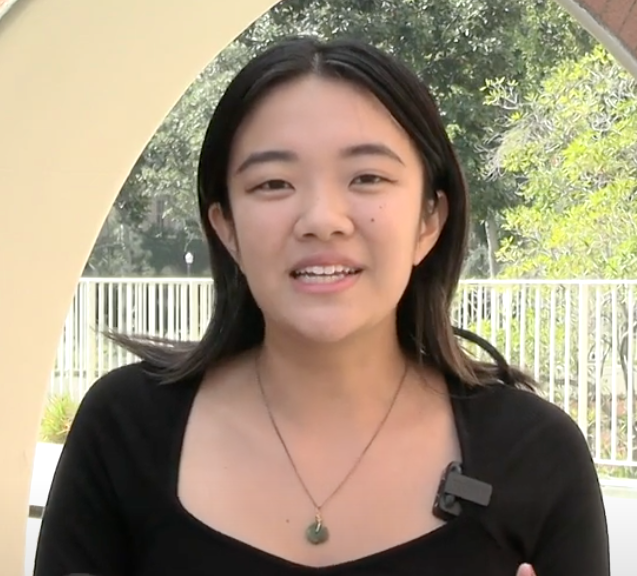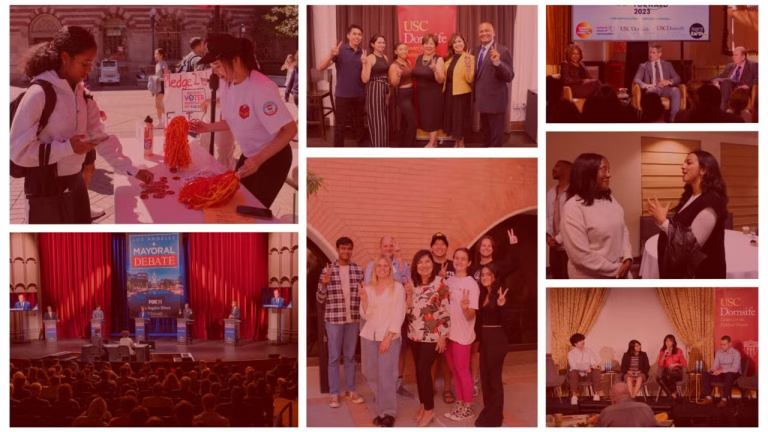USC Open Dialogue Project
Fostering a campus culture that embraces academic freedom, free expression and open discourse
AI-generated image, based on an original USC photo by Gus Ruelas
Mission
The mission of the USC Open Dialogue Project is to foster a campus culture where Trojans embrace and embody the principles of academic freedom, free expression and open discourse—essential values that nurture intellectual courage, open-mindedness, thoughtful engagement, curiosity and the pursuit of knowledge.

Advancing a Culture of Open Dialogue at USC
President Beong-Soo Kim, Professor Neeraj Sood and Professor Robert Rasmussen share their perspectives on the Open Dialogue Project and its role in strengthening USC’s commitment to free inquiry and respectful debate.
Open Dialogue Project Programs
Dialogue isn’t just for the classroom. It’s at the heart of the Trojan experience. At USC, we’re cultivating a culture where every voice matters, every idea is heard and every student has the confidence to engage with respect and curiosity. Explore the programs below and join us in strengthening the art of constructive dialogue.
Open Dialogue Project Programming
Open Dialogue Project Events
Explore upcoming events that bring the USC community together to engage in open, respectful conversations on today’s most pressing and complex issues.
Past Events: Open Dialogue Recordings
Watch select recordings of past USC Open Dialogue Project events that explore the values of academic freedom, free expression and open discourse. Hear from USC faculty, students and guest experts as they engage in thoughtful conversations on the issues shaping higher education and society today.
USC faculty share reflections on the Compact for Excellence in Higher Education and discuss the university’s next steps in advancing academic excellence, equity and impact. Hosted by the USC Open Dialogue Project, this conversation highlights how the Compact will shape USC’s future across teaching, research and public service.
Recording available to USC students, faculty and staff. USC NetID required to view.
USC Dornsife Center for the Political Future Managing Director Kamy Akhavan joined gun safety activist Shannon Watts and environmental protection activist Benji Backer for a discussion on civic engagement, lessons from activism, and how to utilize your passion to enact social change. They discussed their books, how to work across the aisle to drive progress on causes, and how to build movements while reducing political polarization.
Student Perspectives
USC Open Dialogue Project: Affirming the values of free inquiry, mutual respect and intellectual courage
Open Dialogue USC Resources
-
A three-week summer intensive for 26 high school students from Los Angeles County, AYA immerses participants in first-year college-level coursework in media, journalism and civic engagement. Students build skills in writing, public speaking, multimedia production and critical analysis while exploring career paths and connecting with faculty and media professionals.
-
Civic Paths researches and convenes around the intersections of participatory culture, digital media and civic engagement. It supports outreach, creative work and academic inquiry into how youth and communities use media and culture to engage in public life.
-
A field-agnostic guide and training resource from USC Dornsife, Foundations of Academic Dialogue offers best practices for faculty to manage controversial or emotionally charged discussions in the classroom. It includes customizable language, strategies for creating shared norms and tools for navigating difficult moments.
-
USC fosters an environment where freedom of expression is protected and guided by its Unifying Values. This section provides resources, policies and tools to help the community engage openly, responsibly and with respect.
-
An online prevention education module that equips USC students with awareness of common risks, campus safety resources and guidance for exercising free expression in line with university values and policies.
-
A teaching resource from USC’s Center for Excellence in Teaching offers strategies, guidelines and tools to help instructors facilitate classroom discussions on pressing social, political or global issues. It supports the creation of environments where students engage critically, respectfully and thoughtfully with current events.
Center for Excellence in Teaching “Strategies for Discussing Current Events”
-
Today’s political divide is wider than at any time since the Civil War. News is called fake, facts are discounted and rancor is at historic levels. Now more than ever, we need innovative pathways to restore dispassionate analysis to the political arena and renew the spirit of compromise essential to our democracy. The Center for the Political Future combines rigorous intellectual inquiry, teaching and practical politics to advance a new model for political discourse that opens those pathways.
-
Dornsife Dialogues brings together leading USC scholars and distinguished alumni in a series of conversations on topics that matter today, from science and culture to politics and creativity.
-
Heterodox at USC is a publication driven by USC students and scholars committed to publishing critical, independent analysis on politics, culture and public policy. The platform offers essays, commentary and interdisciplinary perspectives that challenge conventional wisdom and foster deeper dialogue.
-
The USC Schaeffer Institute for Public Policy and Government Service produces research that informs evidence-based policymaking and supports students in becoming involved citizens of a healthy democracy.
USC Leonard D. Schaeffer Institute for Public Policy & Government Service
-
USC’s premier multi-partisan student org advancing civil discourse and political engagement on campus.
-
The Political Student Assembly is USC’s hub for political engagement and discourse, hosting events, debates and conversations across the ideological spectrum. Its Instagram account features updates on speaker series, E-board opportunities and campus political programming.
-
Hosted by the WorkWell Center, these weekly live dialogue groups offer USC faculty and staff a supportive space to connect, share coping strategies and manage stress during challenging times. Separate sessions are also available for managers and HR partners. The program fosters community, reduces isolation and promotes collective well-being through collaboration with WorkWell counselors, Student Health and the Department of Psychiatry.
External Resources
-
The Academic Freedom Alliance is an alliance of college and university faculty members who are dedicated to upholding the principle of academic freedom. This principle is central to the mission of our institutions for the pursuit of truth and knowledge. Our members from across the political spectrum recognize that an attack on academic freedom anywhere is an attack on academic freedom everywhere.
-
The Bridging Differences Playbook offers a research-informed collection of strategies designed to support more constructive dialogue, empathy, and understanding across social divides. Through 14 key skills organized into intrapersonal, interpersonal and intergroup practices, the Playbook guides readers in cultivating the mindset and behaviors needed to bridge gaps in beliefs, identity and experience. Each section includes how‑to instructions, scientific rationale and reflection prompts to help integrate these practices into personal, relational and public settings.
-
The Constructive Dialogue Institute is a non-partisan non-profit that equips individuals and institutions with the skills to communicate across differences and build cultures of constructive dialogue.
-
Since its founding more than two decades ago as the Foundation for Individual Rights in Education, FIRE has become the nation’s leading defender of fundamental rights on college campuses through our unique mix of programming, including student and faculty outreach, public education campaigns, individual case advocacy, and policy reform efforts. In 2022, FIRE changed its name to the Foundation for Individual Rights and Expression and announced an expansion initiative into off-campus free speech advocacy and legal defense.
Foundation for Individual Rights and Expression (FIRE)
-
The Heterodox Academy is the leading nonpartisan membership organization for faculty, staff, and students who want to ensure that our universities are places where intellectual curiosity thrives.
-
Open to Debate is the nation’s only nonpartisan, debate-driven media organization dedicated to bringing multiple viewpoints together for a constructive, balanced, respectful exchange of ideas. Open to Debate is a platform for intellectually curious and open-minded people to engage with others holding opposing views on complex issues.
Guiding the Open Dialogue Project
Professor Neeraj Sood, Director, USC Open Dialogue Project
Neeraj Sood is the founding director of the USC Open Dialogue Project. A professor at the USC Sol Price School of Public Policy, he also holds joint appointments at the Keck School of Medicine, Marshall School of Business and Viterbi School of Engineering. He is a senior scholar and founding member of the USC Schaeffer Center for Health Policy and Economics, bringing deep interdisciplinary expertise to the project.
As a member of the Provost/Senate Task Force on Academic Freedom and Professional Responsibility, Sood collaborated with campus stakeholders to develop the recommendations that now guide the project’s mission to promote academic freedom, free expression and open discourse at USC.
He exemplifies the intellectual courage and commitment to truth-seeking that the project aims to foster. During the COVID-19 pandemic, his research challenged conventional wisdom when evidence pointed in a different direction. His recognition as a National Associate of the National Academies of Sciences, Engineering and Medicine reflects his leadership in advancing open, evidence-based dialogue across disciplines.
Kamy Akhavan, Associate Director of Programs, USC Open Dialogue Project
Kamy Akhavan is managing director of the USC Dornsife Center for the Political Future, which promotes civil dialogue and seeks bipartisan solutions to national challenges. He is the former CEO of ProCon.org, the nation’s leading source of nonpartisan research on controversial issues. At USC, he teaches courses on political polarization, nonprofit leadership and interpersonal communication. Akhavan serves on the boards of several organizations, including the Bridging Movement Leadership Council, Listen First Project, Psychology of Technology Institute and The Society Library. His work in bridging divides has reached more than 300 million people, including students at over 12,000 schools in all 50 states and 100 countries.
Juliet Brown, Special Programs Director, Office of the President
Juliet Brown serves as special programs director in the Office of the President at the University of Southern California. With more than a decade of experience advancing USC’s institutional goals, she leads strategic initiatives, streamlines operations and supports executive leadership in driving high-impact projects across the university. Previously, Brown produced presidential and global events, overseeing complex programs that brought together trustees, donors, world leaders and members of the USC community.
Did You Know?
USC Dornsife’s Center for the Political Future brings together students, scholars and political leaders to promote civil dialogue and practical solutions on today’s toughest issues. Through events, research and student fellowships, the center prepares future leaders to navigate politics with integrity, respect and a commitment to democracy.
Join the Conversation Today
Email Us
Questions about upcoming events or interested in partnering with us? Email the Open Dialogue Project and we’ll be in touch.
Follow on Instagram
Get event announcements, speaker moments and highlights from campus conversations, plus timely reminders on how to take part.
Connect on LinkedIn
Join the Open Dialogue Project group on LinkedIn for discussion and opportunities to engage in respectful dialogue across differences.

